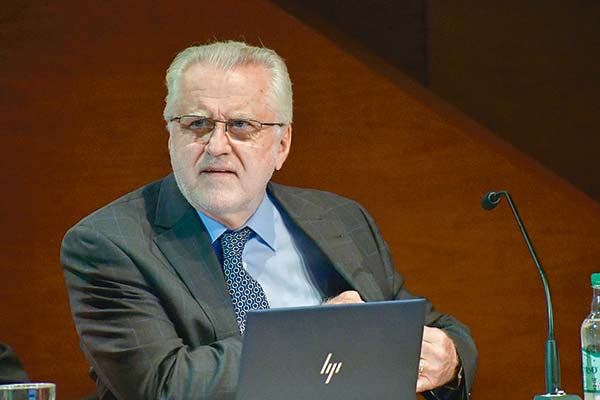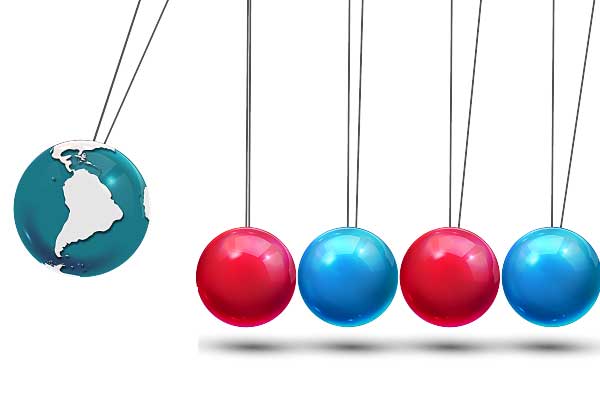DF Conexión a China | Soft power: oportunidad de impacto social
Ignacio Tornero Investigador asociado Centro de Estudios Internacionales UC, ex encargado de oficina de Carey en Shanghai
- T+
- T-

Ignacio Tornero
Bastante se ha escrito y debatido el último tiempo sobre una supuesta estrategia de China de aprovechar la coyuntura del Covid-19 para aumentar su “soft power” mundial, a través de la comunicación de sus logros durante la lucha contra la pandemia, y de diversas iniciativas de ayuda a nivel internacional que han resultado en la acuñación del término “mask diplomacy”.

Lo anterior se ha analizado, generalmente, desde una perspectiva de Estado a Estado y en el marco de las relaciones internacionales —probablemente producto de la definición de Joseph Nye que parte de dicha dimensión—; pero rara vez se ha hecho referencia al papel clave que tienen diversos actores de la sociedad civil como empresas, organizaciones sin fines de lucro, universidades y otras entidades en el proceso de construcción de dicha imagen atractiva.
En este sentido, resulta notable el trabajo realizado por Portland y USC Center On Public Diplomacy y su índice “Soft Power 30”, el que se construye utilizando 75 criterios de muy diversa índole; en el cual Francia, Reino Unido y Alemania ocupan los tres primeros lugares en 2019, mientras que China se encuentra en la posición #27, de un total de 30.
¿Cómo puede entonces China mejorar su imagen internacional, en América Latina y Chile?
Me parece que hay una gran oportunidad de no limitar la proyección y construcción del soft power al gobierno, sino que también dar más espacio y entender la relevancia de distintos actores de la sociedad civil en dicho proceso. Es decir, tener una aproximación “bottom-up” y no exclusivamente “top-down”.
Chile y la región ya cuentan con cuantiosas cifras de comercio e inversión china y con una serie de empresas en un creciente número de industrias; comenzamos a ver la llegada de instituciones educacionales como de otros organismos de ciencia y tecnología. Todo esto, en medio de uno de los contextos más desafiantes de las últimas décadas para el mundo entero.
Aquí, es donde me parece subyace una inmensa oportunidad para China en la región y nuestro país: establecer como prioritario el impacto y compromiso social, y comunicar de forma efectiva dicha estrategia. La mantención y generación de empleo; la implementación de políticas de inclusividad a nivel de género, ingreso, diversidad; la ayuda para mejorar la conectividad de las personas mediante tecnología; el desarrollo de nuevas formas de transporte seguro; la generación de energías limpias; la investigación científica y tecnológica; el financiamiento de emprendimientos. Sólo por mencionar algunas ideas.
Es probable que, de esta forma, la imagen y soft power de China en el mundo experimentarían un interesante cambio para mejor.
Soft power: an opportunity for social impact
Ignacio Tornero
Center for International Studies UC, former head of Carey's Shanghai office
Much has been written and discussed recently about a supposed strategy by China to take advantage of the Covid-19 situation to increase its global "soft power", through the communication of its achievements during the fight against the pandemic, and various aid initiatives at the international level that have resulted in the coinage of the term "mask diplomacy".
This has generally been analysed from a state-to-state perspective and within the framework of international relations -probably in line with Joseph Nye's definition that starts from that dimension-; but rarely is there a mention of the key role played by various civil society actors such as companies, non-profit organizations, universities and other entities in the process of building such an attractive image.
In this sense, the work carried out by Portland and the USC Center On Public Diplomacy and its "Soft Power 30" index, which is constructed using 75 criteria of a very diverse nature, is noteworthy. France, the United Kingdom and Germany are in the first three places in 2019, while China is in position 27, out of a total of 30.
So how can China improve its international image, in Latin America and Chile?
It seems to me that there is a great opportunity not to limit the projection and construction of soft power to government, but also to give more space and understand the relevance of different civil society actors in that process. That is, to have a "bottom-up" approach and not exclusively a "top-down" one.
Chile and the region already have significant figures of Chinese trade and investment and various companies in a growing number of industries; we are beginning to see the arrival of educational institutions as well as other science and technology organizations. All this, in the midst of one of the most challenging contexts in recent decades for the entire world.
This is where I believe an immense opportunity lies for China in the region and our country: to establish social impact and commitment as a priority, and to effectively communicate this strategy. Maintaining and generating employment; implementing policies of inclusiveness in terms of gender, income and diversity; helping to improve people's connectivity through technology; developing new forms of safe transportation; generating clean energy; scientific and technological research; financing entrepreneurship. Just to mention a few ideas.
It is likely that, in this way, the image and soft power of China in the world would undergo an interesting change for the better.































































